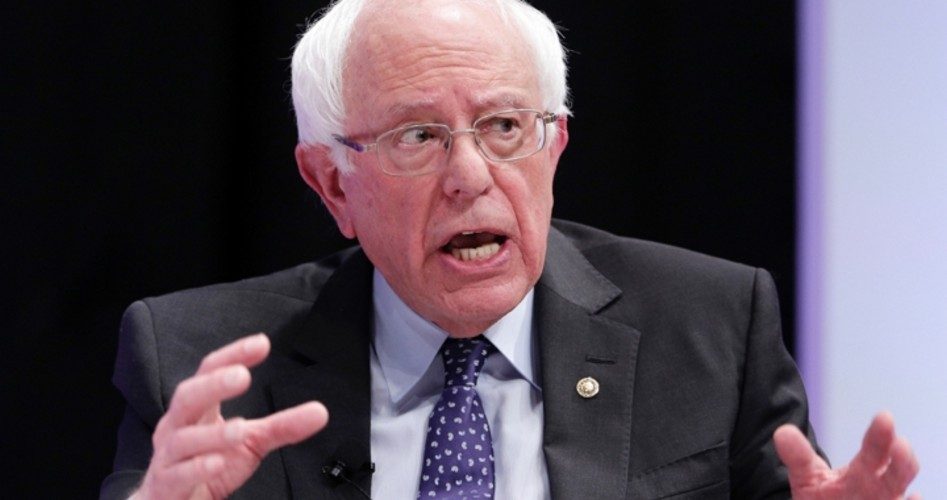
Senator and presidential candidate Bernie Sanders (I-Vt.), writing in a tweet on May 1, criticized a statement made by his strongest competitor in the race for the Democratic presidential nomination, former Vice President Joe Biden. Earlier in the day, during a campaign stop in Iowa, Biden pooh-poohed the notion that China was a serious threat to U.S. economic interests, saying: “China is going to eat our lunch? Come on, man.”
Sanders’ response was:
Since the China trade deal I voted against, America has lost over 3 million manufacturing jobs.
It’s wrong to pretend that China isn’t one of our major economic competitors.
When we are in the White House we will win that competition by fixing our trade policies.
On September 19, 2000, the Senate voted 83-15 to extend permanent normal trade relations to China. Thirty-seven Democrats, including Biden, voted yes. President Bill Clinton signed the bill into law.
The New American summarized the China trade legislation in the “Freedom Index”:
China PNTR. This bill, H.R. 4444, would grant Communist China Permanent Normal Trade Relations (PNTR), and thereby abolish the annual review process of Chinese NTR. It would also pave the way for Chinese entry into the World Trade Organization. The bill would all but guarantee that the tyrannical Chinese government will continue to receive billions of dollars in U.S. taxpayer-subsidized trade annually through export subsidy programs such as the Export-Import Bank and multilateral organs such as the Asian Development Bank and the World Bank.
Just days before the vote, on September 12, 2000, the Senate rejected the Helms Amendment to China Trade introduced by Senator Jesse Helms (R-N.C.). The Helms Amendment would have prohibited the granting of “free trade” privileges to China under Permanent Normal Trade Relations (PNTR) until China abolished the Laogai prison-labor system and released all religious prisoners and labor leaders. The Senate rejected the Helms Amendment, with Biden voting against it.
A May 3 article in the Los Angeles Times noted that in a campaign video and an interview on CNN last week, Sanders spoke of the wide contrast between him and Biden on trade policy: “Sanders was against and Biden was for the North American Free Trade Agreement [NAFTA], expanded trade relations with China and the Trans-Pacific Partnership [TPP] — a 12-nation trade deal negotiated by Obama,” reported the Times.
Politico reported on May 2 that only hours after Biden delivered his first official campaign speech, Sanders went on CNN and contrasted their positions on trade.
“When people take a look at my record versus Vice President Biden’s record, I helped lead the fight against NAFTA; he voted for NAFTA. I helped lead the fight against [permanent normal trade relations] with China; he voted for it. I strongly opposed the Trans-Pacific Partnership; he supported it.”
Photo: AP Images
Related articles:
NYT Finally Admits Biden’s Strong-Arming Ukraine — and Whether His Son Benefitted — Is a Story

